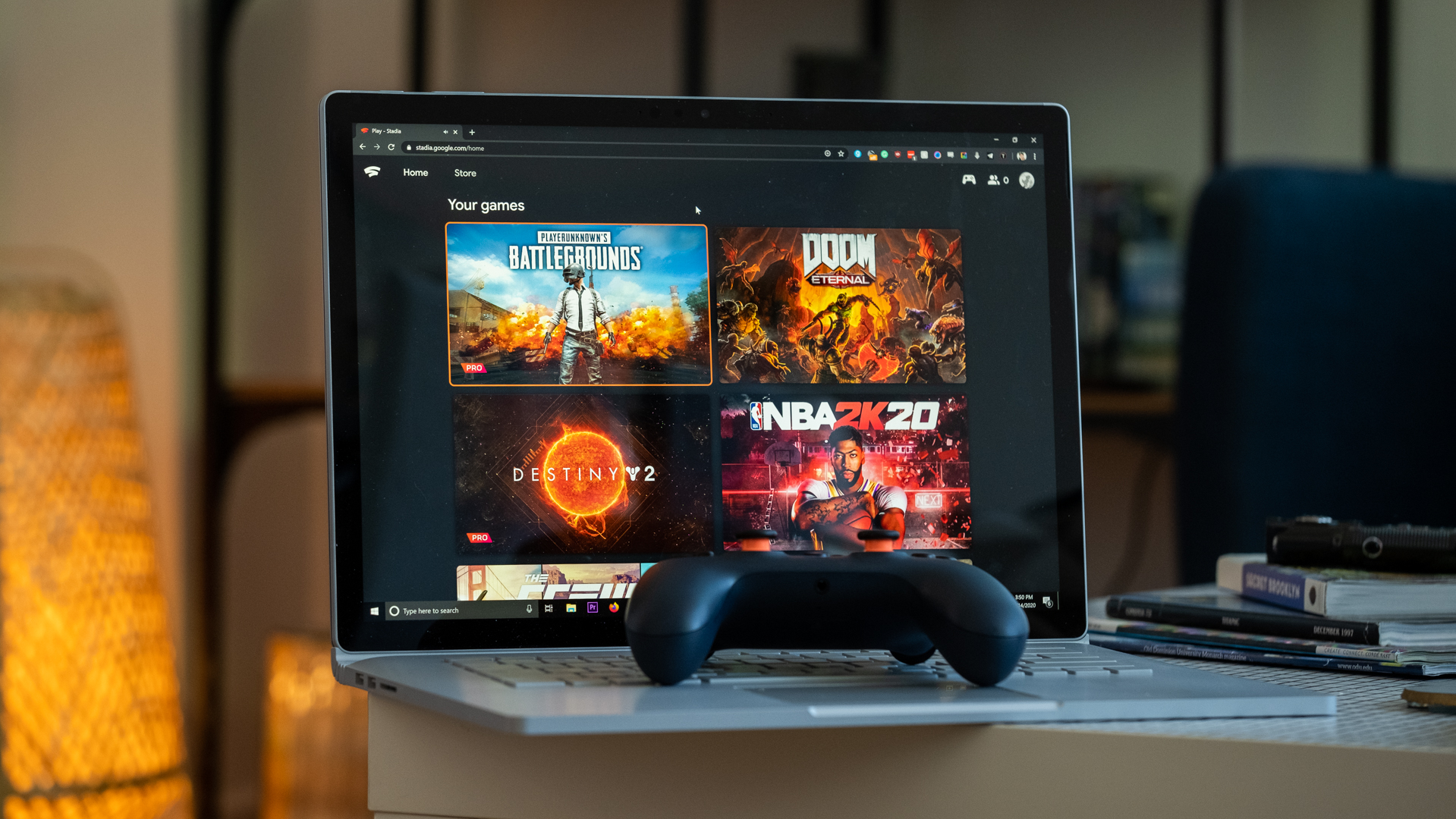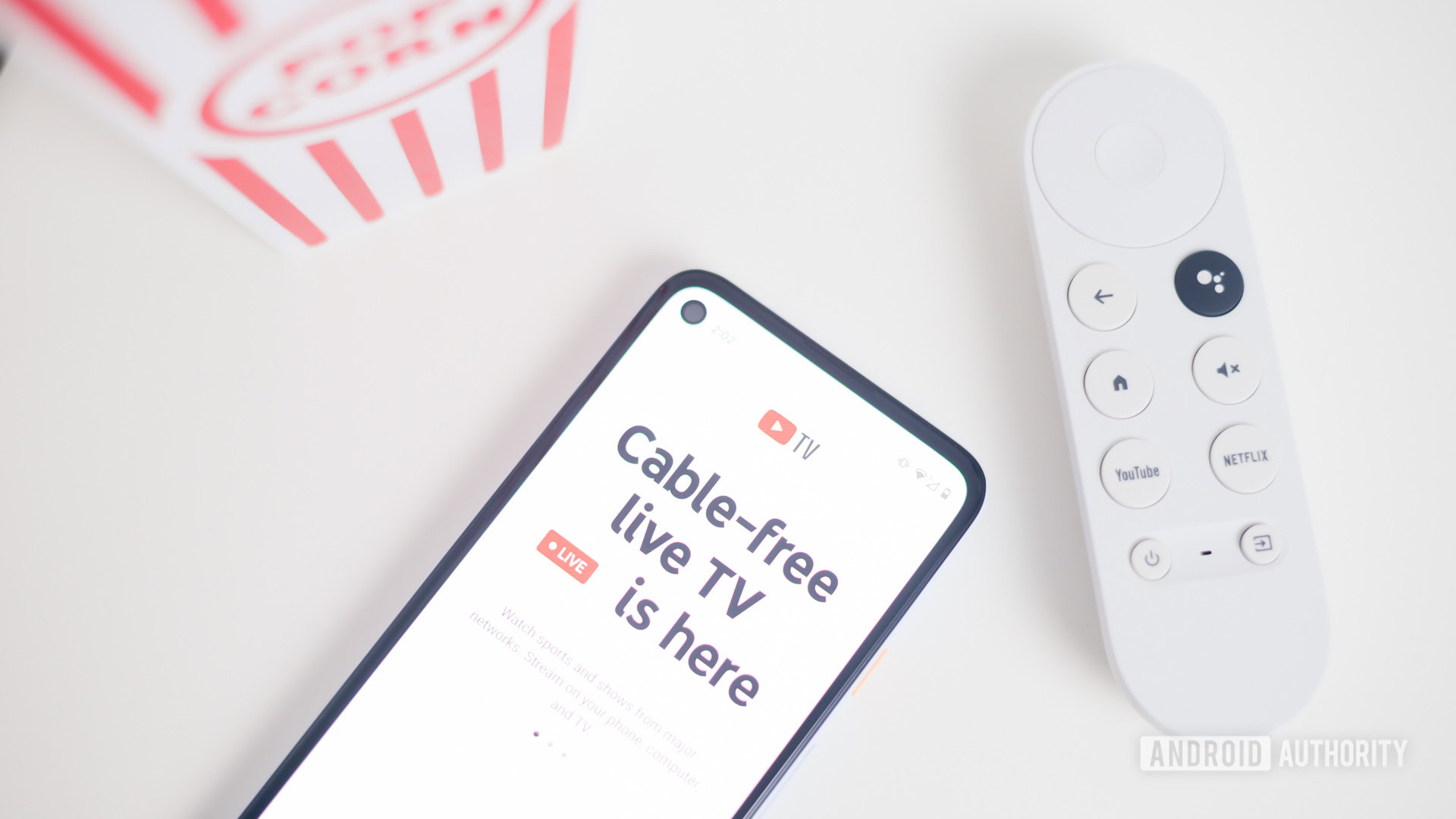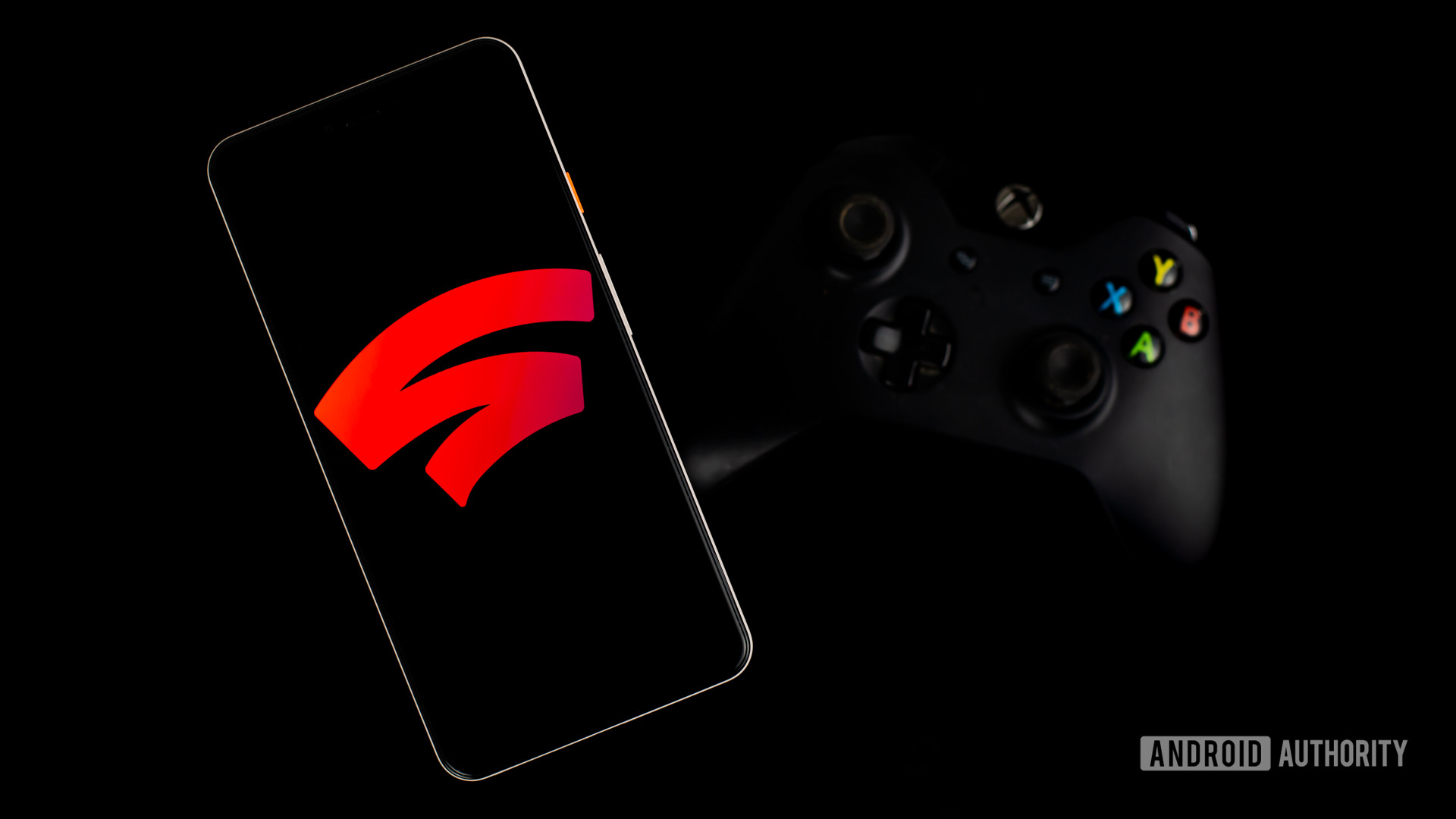Two years later, what is the state of Stadia?
It’s hard to believe it’s been two years since Google Stadia came out. Compared to the excessive fanfare at the time of release, Stadia has been suspiciously quiet for a while now, with things seemingly humming along in the background.
Of course, a lot has happened in the world since then — new consoles, an ongoing global pandemic, etc. — but we thought we’d take this opportunity to take a look at the state of Stadia in 2021. Has it lived up to the hype or is it destined for the infamous Google graveyard? We’ll cover all that and more.
Still the best streaming tech, for now

Starting on a high note, it’s clear that Stadia still has the upper hand when it comes to streaming performance. Other platforms (specifically, GeForce Now) might have caught up to or surpassed the 4K/60fps that Google toted at launch, but the company’s expertise with streaming tech is unmatched.
No matter where you stream — mobile, PC, or TV via a Chromecast — Stadia offers the lowest latency and the best overall experience. It’s also exceptionally convenient to use, launching any game in your library in just seconds.
Read also: Google Stadia vs GeForce Now
Granted, this isn’t much of a change from two years ago. Apart from new software features, performance has remained the same. Google initially toted the ease of hardware upgrades in the cloud, but we have yet to see anything of the sort. Meanwhile, GeForce Now offers GTX 3080s in the cloud and Xbox Cloud Gaming runs on brand new Xbox Series X server blades.
Stadia’s Linux-based hardware still runs most games just fine, but with literally every other cloud gaming platform making huge improvements year-over-year, it’s getting a little long in the tooth. With Google’s waning support for the platform as a whole, new hardware isn’t likely to come any time soon.
A (slowly) expanding game library

Google promised over 100 new games this year at the start of 2021, and the good news is that it’s on track to meet that goal. There haven’t been quite as many releases as 2020, but as the holidays ramp up there should be a significant increase in new games coming to the platform.
That said, the vast majority have been indie games. Good indies games, to be sure, but still not the AAA heavy-hitters that you see on other platforms. Aside from a few notable exceptions like Hitman 3, Resident Evil Village, Humankind, and Outriders, most of the catalog has been filled out with relatively minor releases and ports of older titles.
Read also: The full list of Google Stadia games
To make matters worse, after-release support from developers is often limited. Patches, like the long-delayed Outriders update, come to Stadia well after other platforms. In other cases, they don’t come at all. Humankind, which was the first game to support Stadia’s impressive direct touch feature, still hasn’t released a critical update that hit PC clients months ago.
Lack of after-market developer support isn’t surprising, but it is disappointing.
This is certainly disappointing, but it isn’t terribly surprising. With such a limited player base on Stadia, there just isn’t much incentive for developers. Previously Google would just throw money at developers to port their games, but lately, that hasn’t been the case. You’d think that with the savings from closing its first-party studios the company could have allocated more resources here, but instead, it’s been more radio silence.
Major releases like the remastered Grand Theft Auto trilogy and Battlefield 2042 have skipped the platform entirely. Compared to Xbox Cloud Gaming, which just added the Halo Infinite multiplayer beta on the day it was released, Stadia feels like an afterthought.
The Stadia silo

Edgar Cervantes / Android Authority
Despite the big promises made two years ago, Stadia still seems to be on an island within the broader spectrum of Google services. There are some integrations between Stadia and YouTube, like instant 4K live streaming, but apart from that, it feels remarkably isolated.
So isolated, in fact, that it took nearly a year for the platform to be added to 2020’s Chromecast with Google TV. That device itself launched nearly a year after Stadia, and it’s shocking that at no point in development did anyone consider adding the company’s Chromecast-based streaming platform to the service, but here we are.
Stadia isn’t offered with Pixel Pass, Google One, or YouTube Premium.
On the mobile side, Stadia was initially marketed as a major selling point for Pixel phones. In fact, it only worked with Pixel phones for the first few months on the market. During the release of the Pixel 6 and the all-new Pixel Pass, Stadia was nowhere to be found. Stadia Pro is also not included in bundles with Google One or YouTube TV/Premium.
Meanwhile, YouTube Premium was just added as a perk of Xbox Game Pass Ultimate. You know, that service that includes Xbox Cloud Gaming. If these kinds of deals are possible with rival companies, they should be possible within the same company, as well.
The future of Stadia

Having failed to capitalize on its initial head start in the cloud gaming space, Stadia is largely in the same spot it was a year ago. Which is to say, the service functions well but suffers from a complete lack of direction in management.
There has been no shortage of Stadia naysayers over the years, but Stadia isn’t likely to close its doors any time soon. In the same post that announced the closure of Stadia Games & Entertainment, Phil Harrison — vice president and general manager at Google — wrote that the company will, “continue to invest in Stadia and its underlying platform to provide the best cloud gaming experience for our partners and the gaming community.”
Stadia may end up as the backend of another, more qualified company’s game streaming service.
At the time this sounded like corporate doublespeak, but it finally came to fruition in November when Stadia tech was used by AT&T to offer a demo of Batman: Arkham Knight — a game that isn’t offered on Stadia proper. As time goes on, it seems increasingly likely that Stadia will become purely a backend solution, with other, more capable companies making deals with publishers and setting pricing with services running on Stadia’s cloud technology.
And to be honest, that might be the best solution for everyone. I’ve been bullish on cloud gaming for years now, but at this point, Google has yet to prove to the world that it will be the company to make game streaming mainstream.
If you want to give Stadia a shot, you can currently grab a Stadia Premiere Edition, which includes a Stadia controller and Chromecast Ultra, for just $22.22. If you’re in the US, you can also get a free Premiere Edition with the purchase of any game or game bundle over $29.99, and there are lots of games on sale right now.
Have you tried Google Stadia?
3 votes
For all the latest Technology News Click Here
For the latest news and updates, follow us on Google News.
